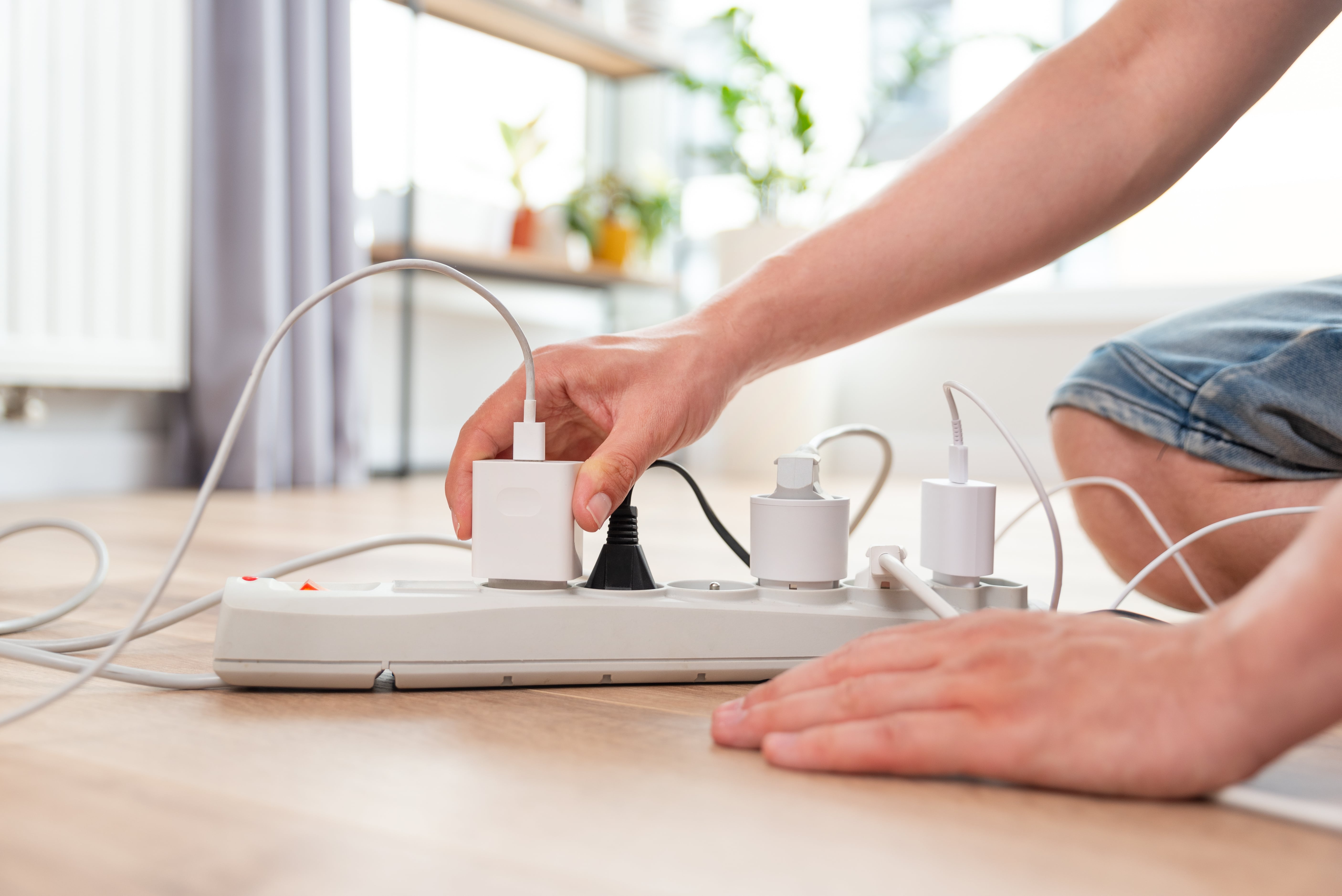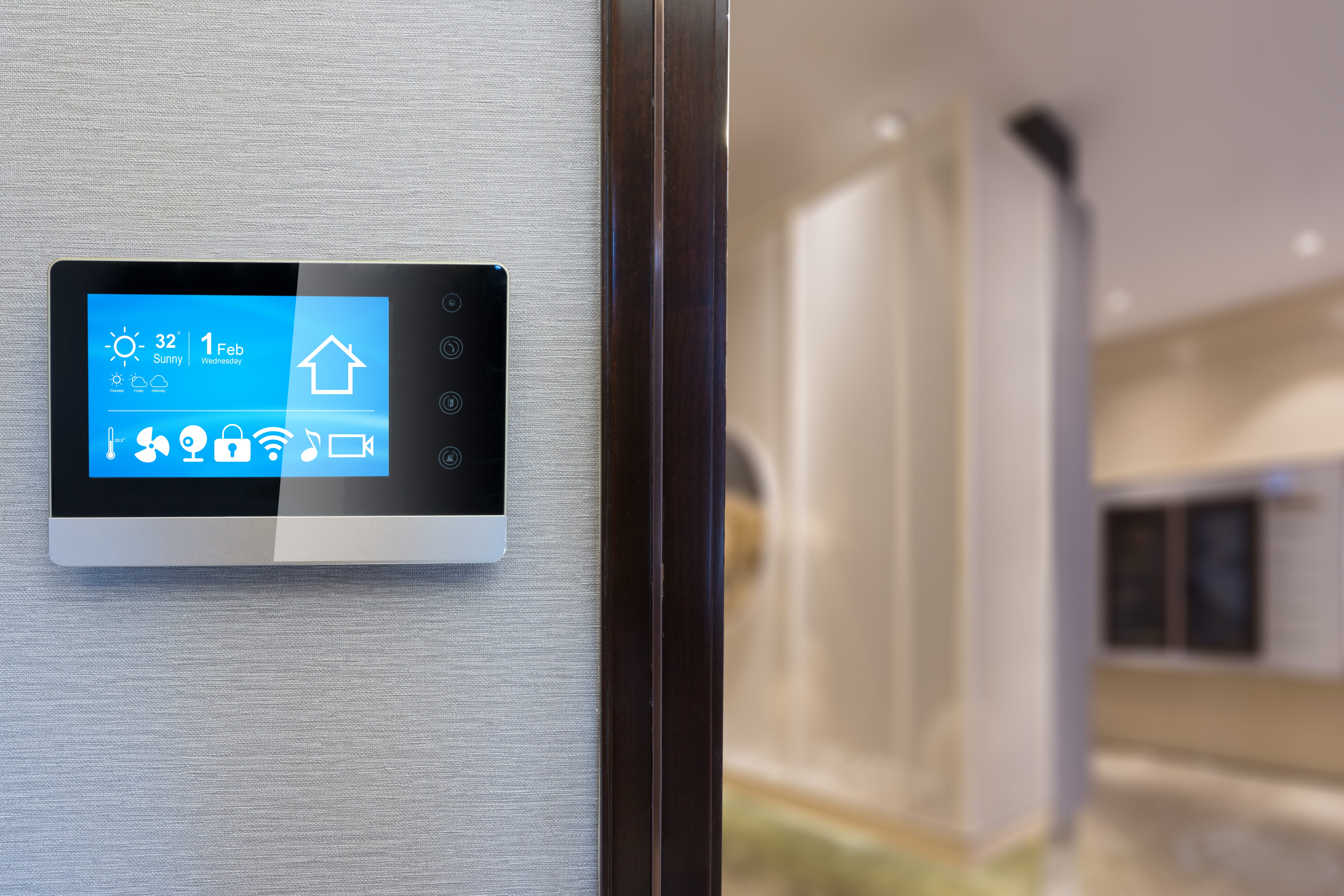Finding ways to save energy in your home not only helps the environment—it can also help you save on your utility bills. While there’s plenty of advice out there to help make your home more energy-efficient, there’s also a lot of false information that can lead you down the wrong path.
Make sure you’re not falling for these energy efficiency myths and learn the right ways to reduce energy consumption in your home.
{{CTA-thermostat-right-plan}}
Myth: Closing Vents Reduces Energy Usage
It’s easy to believe that, if you’re directing air to fewer rooms, you’re using less energy. Your central air unit pushes out the same amount of air and uses the same amount of energy regardless of how many rooms have open vents. So it makes sense that when you close a vent, you’re simply redirecting that room’s airflow somewhere else in your home.
Actually, this is just another one of those energy saving myths, and closing vents could have the opposite effect. By closing vents, you increase the air pressure in the system overall. In turn, your unit will need to work harder, using more energy to run and ultimately wearing out faster.
Myth: Ceiling Fans Cool Down Rooms
In the hot summer months, a ceiling fan makes a major difference in the most-used rooms of your home, like bedrooms and living spaces. Because of this experience, many people assume that ceiling fans cool entire rooms and can therefore save energy by allowing you to use less air conditioning.
However, the truth is that fans cool you, not the room, by moving air to increase the evaporation of sweat. Leaving a ceiling fan turned on in an unoccupied room is a waste of energy and money. Watch out for energy myths like this one, and only use fans when someone is in the room to enjoy their effect. You can even use a ceiling fan with the AC to keep cool, making your home more energy-efficient.
Myth: All New Homes Are Energy-Efficient
In an ideal world, all new homes are built for optimal energy efficiency with the ability to use solar energy already built in. In reality, this simply isn’t the case. It all depends on the design and construction, and whether your contractor or designer incorporates energy-efficient features.
Homes have recently been trending larger, which means they take more energy to power. Homes built after 2000 are, on average, 30% bigger than homes built in the 1990s or earlier, leading to higher heating and energy costs.
Fortunately, there are plenty of upgrades you can make to a newly built home to make it more energy-efficient and save on your energy bill, such as installing solar panels or changing lighting to include dimmer switches and LED light bulbs.
Myth: Setting a Thermostat Higher Will Heat Your Home Faster
If you’ve come home to a cold house, you may look for ways to warm up faster. One of the most common energy conservation myths is that setting a thermostat to a higher temperature can boost the furnace’s power, causing it to warm up a house more quickly.
The reality is that bumping up the thermostat can end up costing you money. Your heating system warms up at a set rate, so if you want your home temperature to reach 70, turning the thermostat to 80 won’t warm your house any faster. Even worse, you may forget to turn down the temperature, resulting in wasted energy (and an uncomfortable environment). Instead, invest in a programmable thermostat so you can set your home’s temperature based on the time of day. A smart thermostat is an even better option and can help you save energy while on vacation.
Myth: Lowering a Thermostat Doesn’t Save Much Money
You want to be comfortable in your home, so you may decide to set the thermostat to whatever temperature you prefer. After all, how much money can lowering the temperature really save you in the long run?
The truth: A lot. Energy conservation facts show that lowering the thermostat just a few degrees can significantly cut back your energy consumption and save you money on your utility bills. If you lower the temperature at night while you’re sleeping, you may not even notice the difference.
Myth: Space Heaters Are More Efficient Than Whole-House Heating
Heating and cooling are one of the largest sources of energy consumption in a home, so many homeowners look for ways to limit their use of the HVAC system. One common method is to invest in electric space heaters and turn down the thermostat, but this is another one of these energy saving myths you should avoid.
Unfortunately, space heaters don’t save energy or money, even if they’re highly efficient models. In fact, using space heaters often results in higher energy consumption than simply using your heating system.
Myth: Handwashing Dishes is More Energy-Efficient Than Using a Dishwasher
Running the dishwasher uses a significant amount of water, as well as electricity to heat that water and get your dishes clean. Because of this, you may think it’s more efficient to wash dishes by hand and avoid using the dishwasher at all.
It may sound counterintuitive, but washing dishes by hand actually uses more hot water than running a full load in the dishwasher. Modern appliances, especially ENERGY STAR® certified models, are designed to be efficient, making the dishwasher the best option for cleaning up.
Myth: It’s Better to Leave Lights on Than to Turn Them On & Off
Another one of those common energy efficiency “facts” is that turning lights back on after they’ve been off creates an energy surge which negates any energy you may have saved by turning them off. Some people have been told that turning things off and on wears out the switch function.
Both are myths. Modern switching capabilities allow devices to be switched on and off without getting worn out. And if there is a power surge, it’s most likely a small one. Always turn off lights when you’re not using them, even if you intend to turn them back on five minutes later.
Myth: Setting Appliances on Sleep Mode Saves More Energy Than Turning Them Off
Televisions, gaming consoles, computers, and many other electronics and appliances have a standby or sleep mode. Putting your devices in this mode allows you to quickly turn them on without waiting for the device to boot up again, but sleep mode is actually a major energy waster.
That’s because these appliances are often “energy vampires,” using power even when turned off or in standby mode. Laptops especially use a substantial amount of energy in sleep mode, so you’re better off turning these devices fully off and unplugging to save energy when they’re not in use.
Myth: The Electricity Provider You Choose Doesn’t Matter
You may think that all energy providers are the same, but that couldn’t be farther from the truth. Gexa Energy offers environmentally-friendly electricity plans designed to meet your household’s electricity needs and budget, as well as plans to help you save money with solar energy and electric vehicles. Whether you’re planning a move to Texas or just looking for a new energy provider, Learn more about Gexa Energy and their 100% renewable plans from environmentally friendly renewable sources.






































